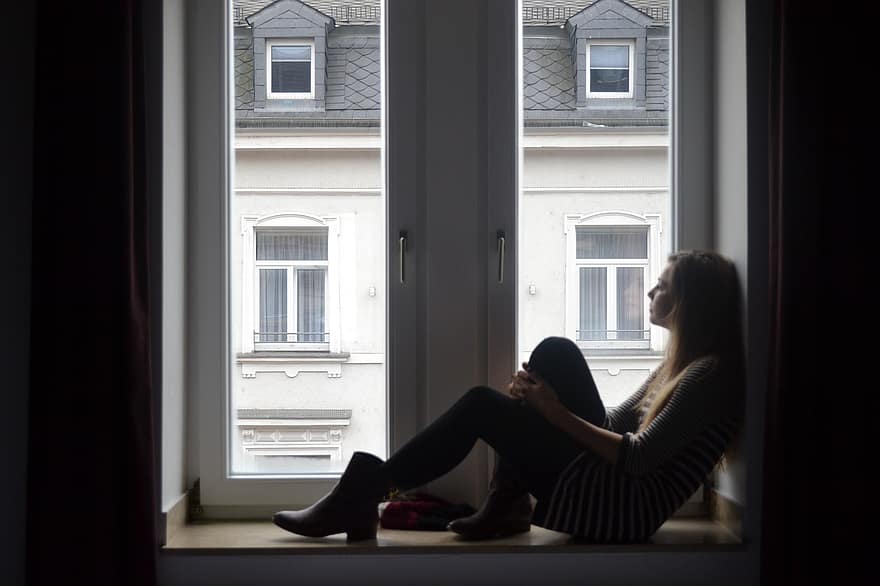Spain and France are both countries in which menstrual leave is becoming more commonplace, leading to a broader conversation within the EU about the benefits of such policies.
In Spain, women will be able to take three days of leave each month in order to cope with menstrual pain, Le Soir reports. Companies in France are also independently taking steps in this direction.
The idea of this type of leave is to allow women suffering from severe menstrual symptoms to take a few hours or days off work each month while removing the stigma around menstruation in general.
Spain will be first European country to introduce menstrual leave
Spain will become the first European country to take the step of officially introducing menstrual leave.
Elsewhere, such as in Italy and Luxembourg, the political debate has been launched but no measures have yet been taken. In Belgium, the cabinet of the federal minister for health, Frank Vandenbroucke, confirmed that menstrual leave is not on the agenda.
But many Asian countries have long had menstrual leave, such as Japan which has had its policy in place since 1947.

Menstrual pain can be debilitating for some women. Credit: Unsplash
“Although menstrual leave may have been seen as a response to menstrual problems for working women, it is not, in the end, welcomed with total and unanimous enthusiasm by the participants,” University of Geneva sociologist Aline Bœuf wrote in her thesis.
“This measure is considered difficult to apply and is feared by some, who worry that it will not only have an individual impact on those who take the leave, but above all a collective one, with an increase in professional discrimination against women.”
‘Painful periods can impact on work capacity’
Professor Jean-Luc Squifflet, head of the gynaecology and andrology department at the Saint-Luc University Clinics in Brussels, said that menstrual leave makes sense.
“I think it's a very good thing to have the possibility to take time off for medical reasons, because you have a painful period – to recognise that for some people it has a big impact on their comfort of life and their ability to work,” Squifflet said.
Squifflet explained that for some women with endometriosis, the pain is so extreme that it impacts their quality of life and ability to work.
Related News
- ING Belgium appoints first ever woman chairman
- Women in Belgium pickier than men when looking for job
“I treat a lot of endometriosis and I think that there should be real recognition and management of this pain during menstruation, for patients who sometimes do not dare to consult a doctor or express their suffering. But we must be careful not to stigmatise them either.”
He said he wasn’t fond of the term “menstrual leave,” because it violates medical secrecy by revealing the exact reason for taking a form of medical leave.
“On a medical certificate, you don't specify the reason for the incapacity to work. Perhaps it would be better to give it another name, like ‘comfort leave,’ for example, in which you could include other adjustments to working conditions for medical reasons, via a certificate to guarantee medical confidentiality.”
Success of a measure ‘depends on the cultural context’
Annalisa Casini, a professor of social and work psychology at UCLouvain, said the cultural context of the implementation of menstrual leave is ultimately what determines its success.
“In the Scandinavian countries, which are more advanced on these issues, it could be accepted very quickly. Elsewhere, it should be possible to integrate the fact that women are not equal when it comes to menstrual disorders,” Casini explained.

Not every woman would be entitled to leave. Credit: Pikist
“While for some, menstruation is not very disabling, for others it is associated with excruciating pain, which is not compatible with work and is equivalent to other illnesses. Menstrual leave should not be associated with the idea that all women in a company will automatically have two or three extra days off per month. Not all women will be entitled to it.”
She pointed out that traditional sick leave is granted on the basis of a medical certificate, meaning it wouldn’t be difficult to ensure that only those who are eligible use the leave.
“Women suffering from severe menstrual syndromes have generally been followed for years by general practitioners who can easily certify a person's condition and temporary incapacity to work.”

